

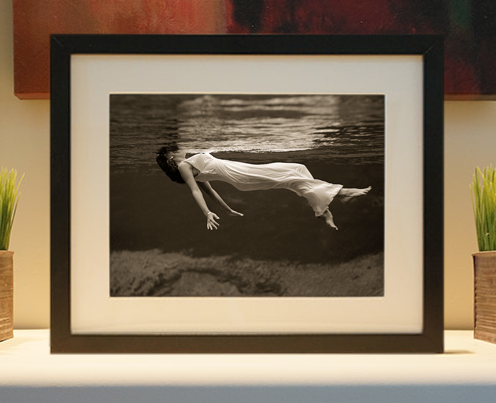
Framed or unframed, desk size to sofa size, printed by us in Arizona and Alabama since 2007. Explore now.
Shorpy is funded by you. Patreon contributors get an ad-free experience.
Learn more.

- Baldwin 62303
- Baldwin VO-1000
- Cold
- No expense spared
- Tough Guys
- Lost in Toyland
- And without gloves
- If I were a blindfolded time traveler
- Smoke Consumer Also Cooks
- Oh that stove!
- Possibly still there?
- What?!?
- $100 Reward
- Freeze Frame
- Texas Flyer wanted
- Just a Year Too Soon
- WWII -- Replacing men with women at the railroad crossing.
- Yes, Icing
- You kids drive me nuts!
- NOT An Easy Job
- I wonder
- Just add window boxes
- Icing Platform?
- Indiana Harbor Belt abides
- Freezing haze
- Corrections (for those who care)
- C&NW at Nelson
- Fallen Flags
- A dangerous job made worse
- Water Stop
Print Emporium
Arlington Brewing: 1920
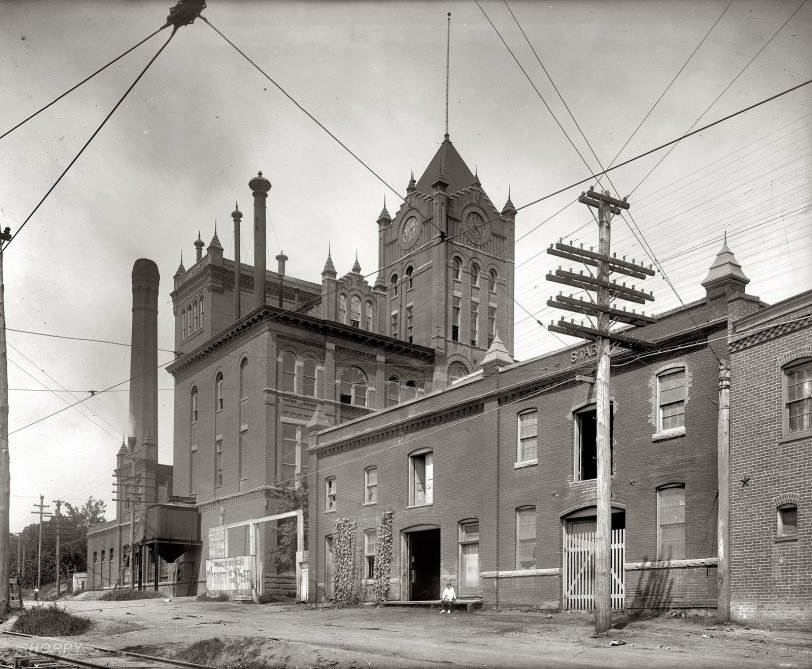
Arlington Brewing Co. circa 1920. An 8x10 glass negative that would leave your fancy-schmancy digtal SLR crying for its mommy. View full size. Nat'l Photo.
W&OD
The tracks in the foreground were the Arlington's own Washington and Old Dominion railroad, which started out in 1847 and lasted until 1968. This shot was taken on the Rosslyn Branch, which was abandoned in the early 1960s. This part of the line is now I-66.
Is that a greenhouse
on the roof? Nice picture.
Prohibition Victim
It certainly looks derelict in the photo, except there some kind of exhaust coming out of a small smokestack next to the larger brick chimney. Perhaps it was already producing Cherry Smash, a process which probably wouldn't require all the brewing apparatus - which I'm assuming all the fancy stacks sprouting from the rooftop are for.
Also, was that a greenhouse on the roof, or an elaborate skylight? What a beautiful building - at first glance, I thought it was a church! (I'm sure for some it would be!)
Sigh!
Once again, the replacement building doesn't even approach the the original. But at least the new building serves a purpose - in my hometown (Joliet, IL) there used to be a similarly beautiful brewery of the same vintage as Arlington, which was torn down about 40-50 years ago for a parking lot (which the site still is today). And it's in a part of town which doesn't have much demand for off-street parking anyway.
Definitely HD
I was literally gasping here for a moment. Then I laughed. That has got to be one of the sharpest images I've ever seen. Obviously the photog knew his business. Then the fact that the full-size image actually contained the information for the small print:
VIRGINIA REALTY TITLE CORP.
CERTIFICATES & ABSTRACTS OF
TITLE FURNISHED TO VIRGINIA
REAL ESTATE ====
==== TITLES INSURED
OFFICE ALEX CO. C.H.VA
...made me laugh. In happy astonishment.
I'd quite like a digital SLR, though.
Fancy-Schmancy?
No doubt that an 8 x 10 view camera can outperform my fancy-schmancy digtal SLR, but I'll take that SLR and day over hauling around the equipment needed for that 8 x 10. Besides, I find that spending time in my "lightroom" beats those many hours spent in the darkroom over the years.
Those Tracks
The details are beyond anything that a digital camera will record. As a rail fan, I noticed the trolley wire frog in the top left hand corner of the photo. While there does not appear to have been a siding to the building, the area was served by an Interurban electric railroad. By the mid thirties, most Interurbans were being abandoned. It's hard to tell if those tracks were still in use. But it does not look like they were.
An Excellent Point
This worries me too. When we cleaned out my Great Grandmothers house after she died we found a huge album of photos taken in Alaska between about 1880 and 1920.
I'm not sure what, if anything soomeone would do if they came across a bunch of my backup dvd's or and ancient external hard drive a hundred years in the future.
Hopefully technology will settle on one photo format soon and stick with it.
Sharp
"An 8x10 glass negative that would leave your fancy-schmancy digtal SLR crying for its mommy. "
To say the least.
Detail
When your pixels are molecular sized you can usually get more detail.
[The obvious difference is that in an SLR the verticals would be tilted inward toward the top because you have no perspective control. The "pixels" would probably be around the same size or a little bigger than a CCD pixel (a 12-megapixel SLR can capture far more detail than a 35mm film camera). But there would be many more of those pixels -- the image sensor in an SLR is around one square inch; an 8x10 glass plate is 80 times as big. - Dave]
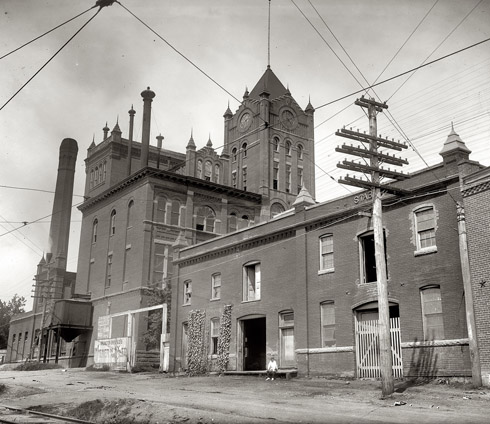
Does that faded sign say
"Wiener the perfect beer?" "Wiener the Purified Beer?"
Can't quite make it out.
[Pure. - Dave]
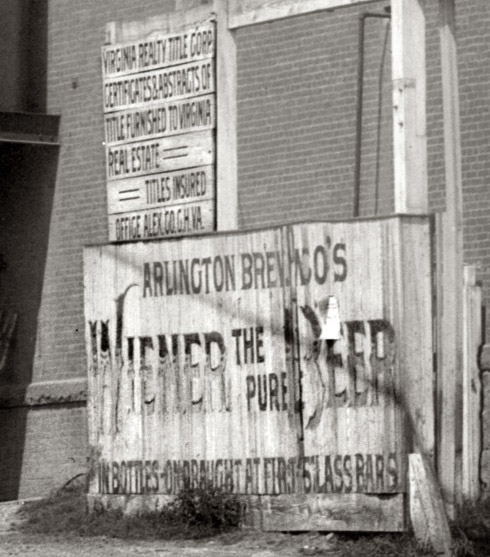
And, it's still here
Not only is it incredibly detailed, but more importantly, it's still here. This negative survived by just being stuck in a box somewhere in a reasonably favorable environment. Do nothing over the next 88 years with the digital image you take today and see if anybody's able to view it in 2096.
Also, a new Shorpy pastime: Count the Bricks!
Hayloft
That "second floor door" is where hay was stored in the stable. The exposed beam above the door is a pulley post. Wagons loaded with hay and feed would drive up and their loads would be lifted into the hayloft using block and tackle. When it was time to feed the horses, hay was dropped down a chute or opening into the stall cribs in the stable below. The iron gate is for equine access.
Arlington Brewing Co. probably used big draft horses - Belgians, Percherons, Clydesdales or the like. Barrels of beer are heavy!
Prohibition Victim
If this photo was shot in 1920, the Arlington Brewing Co. had already been out of the beer business for four years. The state of Virginia went dry in 1916, and the brewery was located in Roslyn Virginia. During Prohibition it produced a soft drink called Cherry Smash. It didn't reopen after the repeal of Prohibition in 1933 and was used as a warehouse until the building was torn down in 1959 to build a new hotel. Presumably the hotel resembles a box (doesn't all 1959 period construction).
[Key Bridge Marriott. - Dave]

Watch That First Step!
Those doors on the second floor look pretty dangerous!





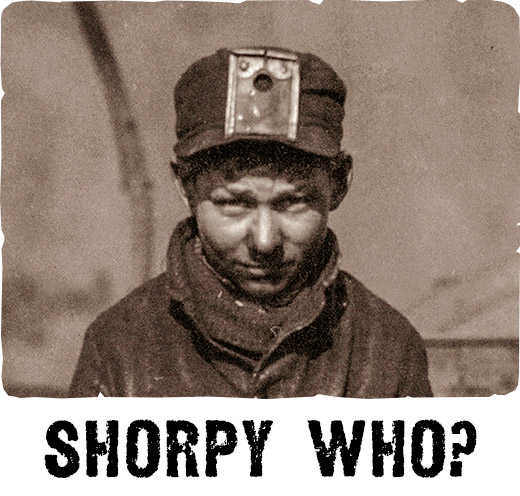
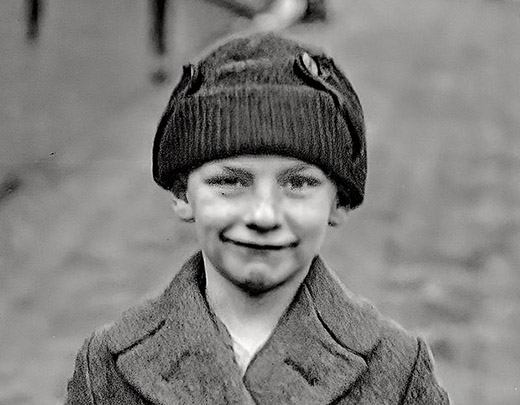
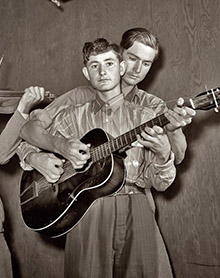
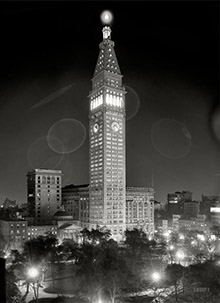
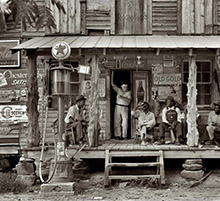
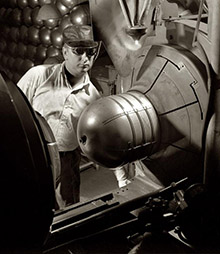
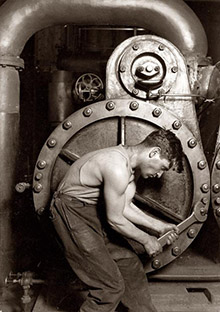
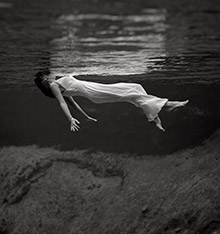
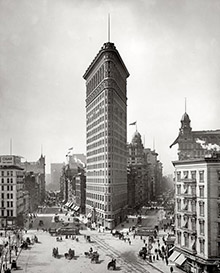



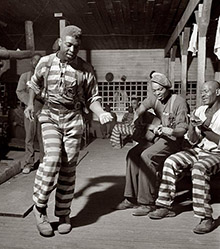
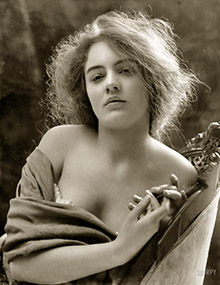
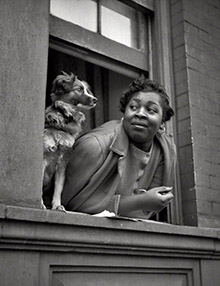

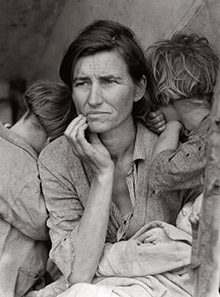

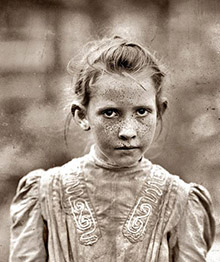
On Shorpy:
Today’s Top 5